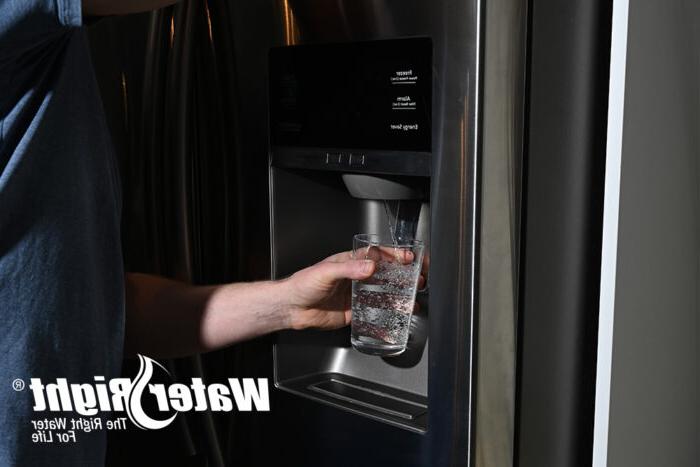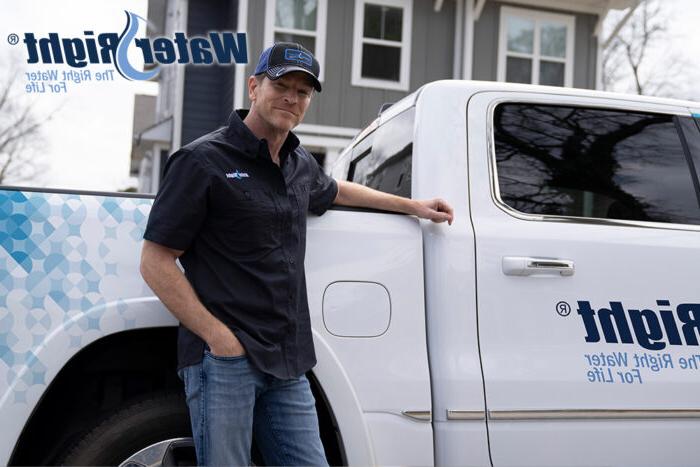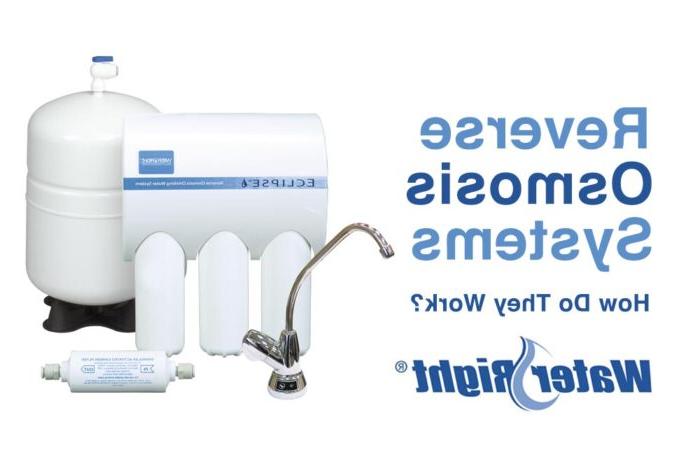Many people don’t realize how much low water pressure can affect their daily lives. In a home that is lacking in optimum water pressure, washing machines take longer to fill up, dishwasher performance is negatively affected, and faucets slow down to a dribble. Showering can become a time-consuming task as you struggle to rinse soap and shampoo away because there isn’t enough water coming out of the pipes to do an efficient job.
Living in a home with low water pressure is frustrating and inefficient, but what’s worse is that many homeowners don’t realize that the water pressure issues could be remedied if they first identify the root cause. Instead, too many live with their home’s low water pressure and risk major plumbing problems in the future. It is important to learn how water pressure issues come to be so that they can be fixed.
Inadequate water pressure can be caused by a multitude of reasons, and each situation is unique. Some water pressure issues can be caused by a home’s private well or valve issues from the municipal water supply. Whether on a private well or connected to a municipal water source, if your home has hard water, the hard water could be leaving mineral deposits that build up over time restricting flow.
Let’s explore some of the common reasons why homeowners experience low water pressure.
Water Pressure Regulator Problems
Some homes have a water pressure regulator that controls the water pressure. A water pressure regulator is a valve that reduces water pressure coming into the house to a safe and comfortable level. It makes sense that a faulty water pressure regulator could cause issues with low water pressure.

Water pressure that’s too high can create plumbing issues and cause unnecessary stress on appliances like dishwashers and clothes washers. A regulator protects pipes and appliances, and it can extend the life of plumbing fixtures.
When a pressure regulator fails, it could cause a sudden increase or decrease in water pressure. A common reason for failure is sediment build up in the valve, which could cause blockages, pump problems, and short cycling. A broken water pressure valve can also wreak havoc on sprinkler systems and can even lead to broken pipes.
If you think a water pressure regulator issue could be a cause of your low water pressure, it’s best to call a local plumbing professional. It could be that your regulator is set too low to meet your family’s demands. For example, do you seem to lose pressure when showering at the same time the dishwasher is running? Similarly, it could be that your water pressure regulator has failed and simply needs to be replaced.
Low Water Pressure from Faucets and Fixtures
Water pressure problems could be as simple as faulty faucets and fixtures. If you’re experiencing low pressure in a specific area, check for clogging or corrosion that could be slowing water flow.

Issues with seals and connections can impact the water pressure coming out of the faucet, so it is important to not only inspect the faucet and fixture themselves but the connections as well.
Additionally, regardless of whether a home’s water comes from their municipality or a private well, hard water coming from either can cause buildup that clogs faucets and fixtures, sometimes even breaking them altogether.
Buildup from hard minerals, such as calcium and magnesium in your water, are common hard water problems that affect fixtures and faucets. The tiny holes in your shower head, for example, can easily get clogged with the residue that dissolved minerals leave behind.
The good news is that you can easily replace faucet aerators, clean showerheads to remove limescale, or simply buy new fixtures to replace the defective ones, which can improve your water pressure. However, it is important to know that repairing or replacing faucets and fixtures is only a temporary solution. The problem will come back over time unless the hard water is softened and the minerals are removed.
A residential water treatment solution, such as a quality water softener, is the best way to permanently avoid these annoyances and problems with water pressure resulting from buildup.
Clogged Pipes Can Impact Water Pressure
Of course, fixtures aren’t the only things that can become clogged by mineral deposit buildup from hard water. The issue could run deeper, resulting in more serious plumbing headaches. Clogged pipes are one of the most frequent causes of low water pressure.

Many people don’t realize that clogged drain pipes will not affect your home’s water pressure. The pipes that deliver water through your home are different pipes and are primarily affected by minerals instead of food or bio-slime, so treating clogged drain pipes won’t impact your home’s water pressure.
Consider that the pipes in your home are a lot like the arteries in your body. And, just as cholesterol can clog your veins, limescale and/or other minerals restrict the diameter of piping over time, leading to low water pressure.
When there are plumbing issues contributing to water pressure reduction, it will happen slowly over time. So, you may not notice it until you recognize the signs and symptoms and the problem becomes bad enough that you need to call a plumber.
Unfortunately, fixing these pipes may require replacement depending on how much damage has been done. It’s important to catch this problem early, so if you visit friends and family and notice they have much better water pressure, it could mean yours needs to be examined. Get your water tested and invest in a water softener if your water needs to be treated.
Clogged Water Heater Piping Can Reduce Water Pressure
Another area of concern when diagnosing pressure problems is a home’s water heater.
If you specifically notice reduced pressure when using hot water, it could be that your water heater is struggling to produce enough for your home’s usage requirements.
There’s a very good chance hard water is contributing to your troubles. Buildup in pipes may be blocking flow into and out of the water heater, which results in less-than-desirable pressure.
Hard water can also wear out appliances including water heaters, dishwashers, and washing machines sooner than expected. Investing in a water softener can remedy your water problems and put you on the path to improving your water pressure.
Corroded Plumbing Causes Low Water Pressure
Not only can your water pipes become clogged with scale, they can also become restricted by corrosion. Plumbing problems that lead to poor water pressure often happen in systems with older, galvanized iron pipes, which can corrode as a result of the water’s pH level.

Acidic water with a low pH can cause corrosion which lead to small holes and leaks in your pipes. These small holes let water escape before it reaches your faucet, resulting in a lower pressure at the tap. Elevated levels of dissolved oxygen in water, sulfate and iron bacteria, high total dissolved solids (TDS), and sediment in the water that wears on piping may also produce corrosion.
Corroded pipes resulting from unbalanced pH levels may be the cause of your water pressure woes. It’s important to have your water tested and your plumbing inspected if you suspect this is what is causing your low water pressure.
Low Well Water Pressure
First, it’s important to determine if your low water pressure could stem from your water source. Homeowners in rural areas who get water from a private well may have different reasons for low water pressure than someone whose water comes from a municipality. There are a number of ways that well water specifically can affect your water pressure; however, if you’re not on a private well, these issues will not apply.
Well water is often prone to water quality issues that thankfully can easily be remedied. Common issues, such as hard water, can result in unwanted sediment or minerals flowing with your water. Hard water from a private well can affect your water pressure.
One common way that hard water affects water pressure is that the minerals in hard water can clog the well screen. If you have elevated iron levels in your well water, this screen can also become clogged by the rust build-up it will leave behind. In this case, a local well and pump expert can come to remove the pump, flush the well, and clean or replace the screen as well as any other components that are causing problems. Having a clogged well screen may indicate your well needs a better seal.
Low water pressure from a well could also stem from a change in water levels. Nearby wells accessing the same aquifer could be affecting your supply. Or, the aquifer could be dried up and your well may need to move or be dug deeper.
While this is not an exhaustive list of reasons how well water can affect your water pressure, these are some of the more common causes of low water pressure. If you have city water, keep reading.
Low Water Pressure Caused by Municipal Water Valve Issues
For homeowners whose water supply comes from their local municipality, low water pressure may stem from valve issues. City residences connected to a municipal water supply will have two important valves: one at the street level found outside your home at the water meter, and the other is the house’s main water shut-off valve. If either of these valves are partially closed, you may notice a difference in water pressure.
Issues with valves are uncommon, but if there’s a sudden change in pressure, it’s worth making a call to your local public works department to have it checked out.
The water meter valve should be operated by the municipality. If there were any utility repairs or work done on your home recently, and your entire home experienced a sudden drop in water pressure, it is possible that’s the cause.
The main shut-off valve, which is where water enters your home, should also be checked to ensure it is fully open. The main shut-off valve can be located inside or outside your home and is often found near the water heater.
Prevent Water Pressure Problems with a Water Softener
If your home has hard water (as the majority of U.S. homes do), the best way to protect your investment is to have a high-quality water softener installed by a local expert who understands the water quality in your area.
Soft water helps you avoid the buildup that causes low water pressure, among many other plumbing issues. From personal care problems like dried out hair and skin, to housecleaning headaches and appliance issues, hard water is a nuisance.
The good news is that it’s easy to correct water issues and resolve low water pressure problems. Contact one of our knowledgeable dealers and have them evaluate your situation. Be wary of a do-it-yourself fix as installing a water softener from a big box store could lead to more problems. Trust the experts to identify the right water treatment for your home and family.
Find the right contractor for you.
Recent Homeowner Resources

Can In-line Filtration Fix All Water Problems?

What To Look For In Your Water Softening Equipment Provider?



